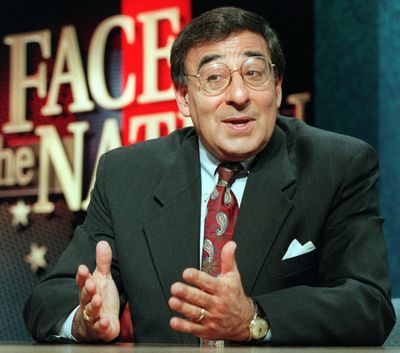Obama’s CIA pick attracts criticism
Panetta offers broad political experience but little in intelligence matters

WASHINGTON – President-elect Barack Obama has selected Leon E. Panetta, a former California congressman with little experience on intelligence matters, to serve as the next director of the CIA.
The surprise pick of Panetta, a chief of staff to President Bill Clinton, would give Obama a Central Intelligence Agency director with loyalty to the White House and an experienced managerial hand to steer the incoming administration away from potential intelligence scandals.
But the selection runs the risk of putting an outsider at the helm of the CIA just as the agency seemed to be regaining its footing after years of criticism for intelligence failures leading up to the terrorist attacks of Sept. 11, 2001, and the Iraq war, and for the aggressive interrogation tactics used in their aftermath.
If confirmed by the Senate, Panetta would be among the few directors in agency history with no prior experience at one of the nation’s spy services. Largely for that reason, Panetta’s selection was met with criticism on Capitol Hill.
Sen. Dianne Feinstein, D-Calif., who this week begins her tenure as the first female head of the Senate Intelligence Committee, said she was not consulted on the choice and indicated she might oppose it.
“I was not informed about the selection of Leon Panetta to be the CIA director,” Feinstein said. “My position has consistently been that I believe the agency is best served by having an intelligence professional in charge at this time.”
A senior aide to Sen. John D. Rockefeller IV, D-W.Va., the outgoing chairman of the Senate Intelligence Committee, said that the senator “would have concerns” about a Panetta nomination.
Rockefeller “thinks very highly of Panetta,” the aide said. “But he’s puzzled by the selection. He has concerns because he has always believed that the director of CIA needs to be someone with significant operational intelligence experience and someone outside the political realm.”
However, the choice of Panetta was praised by others who see him as an outsider who can bring accountability and reform to an agency accused of human-rights abuses during the Bush administration.
“We need the CIA to collect reliable, actionable intelligence in ways that respect American values and honor the Constitution,” said Rep. Rush Holt, D-N.J., chairman of the House Intelligence Committee’s oversight subpanel.
Panetta would step into the post at a time when the CIA is trying to stay abreast of the ongoing wars in Iraq and Afghanistan, as well as the pursuit of al-Qaida and other terrorist groups.
The Obama team had struggled to settle on a CIA candidate after passing over former high-ranking agency official John Brennan in December, because he was seen as too closely tied to the policies of the Bush administration.
Panetta would not have complete control over the CIA and its nearly 20,000 employees. He would report to retired U.S. Navy Adm. Dennis C. Blair, who was picked by Obama in December to serve as national intelligence director, a position created in 2004 to oversee the operations of the CIA and the other 15 agencies that make up the U.S. intelligence community.
Unlike Panetta, Blair has a long track record in national security matters. He held a series of high-level defense posts, including overseeing U.S. military operations in the Pacific. He also served a year at the CIA as the agency’s military liaison. How Blair and Panetta work together could be crucial to the operation of the intelligence community under Obama.
The CIA has seen its role and influence reduced dramatically in recent years as part of a reshuffling of the intelligence community.